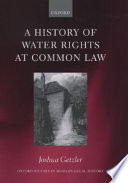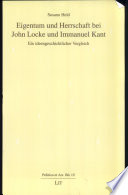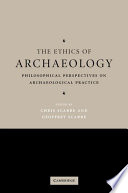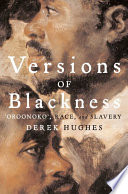 Nor was this appropriation of any parcel of land, by improving it, any prejudice to any other man, since there was still enough and as good left, and more than the yet unprovided could use. Nor was this appropriation of any parcel of land, by improving it, any prejudice to any other man, since there was still enough and as good left, and more than the yet unprovided could use.  The Works of John Locke - Page 356by John Locke - 1823Full view The Works of John Locke - Page 356by John Locke - 1823Full view - About this book
 | Joshua Getzler - Language Arts & Disciplines - 2004 - 444 pages
...hath therehy appropriated it to himself. . . . Nor was this appropriation of any parcel of Land, hy improving it, any prejudice to any other Man, since...in effect, there was never the less left for others hecause of his enclosure for himself. For he that leaves as much as another can make use of. does as... | |
 | Law - 274 pages
...Required," inTTieMonistTS (October 1990): 504-18. Toward a Lockean Theory of Intellectual Property "Nor was this appropriation of any parcel of land...there was still enough and as good left, and more man the yet unprovided could use. So that, in effect, there was never the less left for others because... | |
 | Pat Stevens, Patrick Stevens - Fiction - 2004 - 463 pages
...and Ted Turner shriek from the sidelines, and Captain John Locke sorts Nozick's nonsense out with: For he that leaves as much as another can make use of, does as good as take nothing at all. The Christian side relaxes for just a moment, then the communist fly-half Rousseau makes a dash up... | |
 | Ronald P. Salzberger, Mary Turck - History - 2004 - 368 pages
...small population, an individual appropriation of land makes no one worse off. As John Locke put it, "He that leaves as much as another can make use of, does as good as take nothing at all. No Body could think himself injur'd by the drinking of another Man, though he took a good Draught,... | |
 | Merete Falck Borch - History - 2004 - 346 pages
...quoted above), making colonization entirely justifiable. Locke was himself implying as much when he said "he that leaves as much as another can make use of, does as good as take nothing at all," and later, even more clearly: let him plant in some in-land, vacant places of America, we shall find... | |
 | John E. Ikerd - Capitalism - 2005 - 228 pages
...which he stated that the right to take goods from the natural commons is limited by the condition that "there was still enough, and as good left; and more than the yet unprovided could use."15 Even Locke recognized that society could not allow people to take whatever they wanted from... | |
 | Susann Held - Authority - 2006 - 314 pages
...Seiten später konkretisiert er die Gleichwertigkeitschranke in Bezug auf die Aneignung von Boden: „So that, in effect, there was never the less left for others, because of his enclosure [of land] for himself: for he that leaves as much as another can make use of, does as good as take... | |
 | Chris Scarre, Geoffrey Scarre - Social Science - 2006
...much is his property.' One proviso Locke includes is that this should not prejudice others, in that 'there was still enough and as good left, and more than the yet unprovided could use' (1991: 132). Although it is known that Locke had the large undeveloped expanses of the American continent... | |
 | Derek Hughes - Literary Collections - 2007 - 371 pages
...that was his Property, which another had no Title to, nor could without injury take from him. . . . Nor was this appropriation of any parcel of Land,...was never the less left for others because of his inclosure for himself. For he that leaves as much as another can make use of, does as good as take... | |
 | Sabrina P. Ramet - History - 2007 - 196 pages
...from the property right."" On the other hand, there is this striking passage in the Second Treatise: For he that leaves as much as another can make use of, does as good as take nothing at all. No Body could think himself injur'd by the drinking of another Man, though he took a good Draught,... | |
| |